
Advantages of Studying in UK
They also have a reputation for world-class research. UK higher education degrees and qualifications are recognized by employers and academics worldwide. The UK is one of the world's most popular destinations to study higher education, with more than 600,000 international students enrolling each year. Students get the opportunity to develop the skills, knowledge, critical thinking, and connections to drive forward their career.
The UK is renowned for its cultural diversity. You will be welcomed into a multicultural society where you can discover all faiths, religions and languages present throughout the country. You will be able to explore a wealth of widely available cuisines, where a taste of home will never be too far away. And you will also be able to enjoy countless festivals and events celebrating history, music, sports and religion.
Studying in a culturally diverse country will give you an understanding of different perspectives within the world we live in. You will be able to share your language skills with others, and theirs with you, discover new ways of thinking, new knowledge and new experiences.
You will also be surrounded by fellow international students, so there will be lots of people in the same situation as you and you will be able to build a global network of friends and contacts.
In the USA the cost of one year for an undergraduate programme is typically over $25,000. In the UK, it will generally cost significantly less. However, one of the main factors that make studying in the UK cheaper than studying in the USA, is the time it takes to complete your degree.
In the UK, undergraduate programs are typically three years, while in the USA they are normally four years long. While this is a great way to start pursuing your desired career sooner, it will also save you money on tuition, accommodation and living costs.
Prestigious Universities
There are 18 UK universities ranked in the top 100 universities of the world, including Durham (QS World University Rankings 2020). Durham University is 7th in The Times and The Sunday Times Good University Guide 2020. University lecturers are leaders in their fields, and prestigious Russell Group universities such as Durham University use a progressive, research-led approach. 18 of Durham University’s subjects are ranked in the top 100 in the world with ten subjects featuring in the world top 50 (QS World University Rankings by Subject 2019).
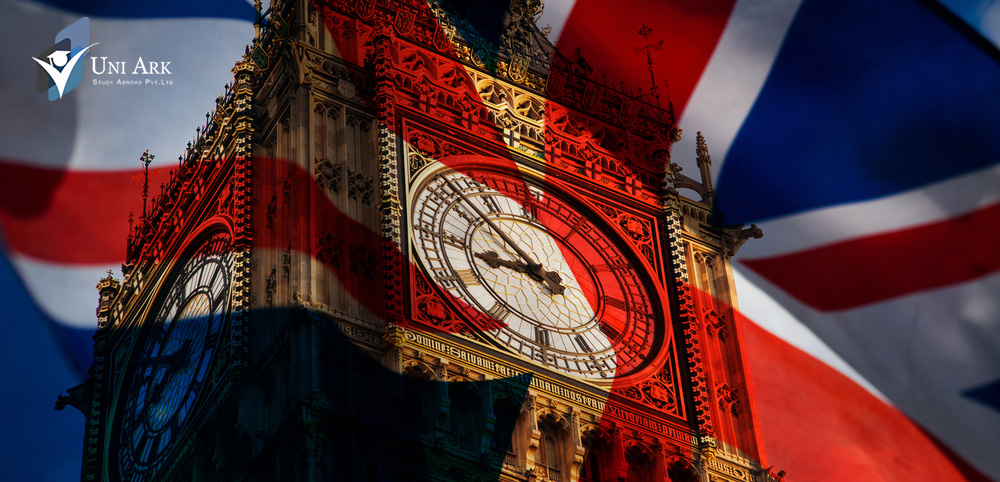
Long History Of Success
The UK is home to some of the world’s oldest and most respected universities – founded in 1837, Durham University is the third oldest in England.
Career Development
Career preparation is an important part of university life. Universities such as Durham have a structured development programme to help you meet your career goals stand out in the graduate market.
Shorter Duration Of Courses
Courses in the UK education system are shorter and more intensive than many other countries, which means you'll graduate sooner, and without compromising on quality. While you can complete an undergraduate program in three years, you'll be able to finish a graduate program in just one year.
UK Checklist (For Application)
- Copy of First & Last Page of Passport
- IELTS / TOFEL Score card (if you have)
- 10th / 12th Mark sheet and Certificates
- Updated Resume
- Bachelor’s Degree / Provisional Degree and All Semesters mark
- Master’s Degree / Provisional Degree and All Semesters mark sheet
- Work Experience Certificate (If you have)
- Statement of Purpose (Sample format attached)
- 2 LORs (Sample format attached)
Cost Of Study And Cost Of Living In UK

- For Indian students staying in London, an average of £1,265 per month is required as living expenses according to UKVI
- Indian students staying in other parts of the UK require a minimum of £1,015 per month as living expenses
- Annual living costs for Indian students in the UK may therefore come up to £12,000 - £15,000 in addition to their tuition fees
- Learn more about budgeting your expenses and cutting down on living costs while studying in UK here.
Uk Tuition Fees – International Students

Accommodation Costs
Accommodation costs depend on the location of the UK University and the type of residence. Living expenses are usually higher in and around London in comparison to other parts of UK. Hence, the actual cost of living for Indian students in UK varies according to their university’s location.
Different types of accommodation include:
- Universities: Hall of residence: These are owned and managed by universities and typically include private rooms with shared kitchen and lounge areas catering 4-8 students. Utility bills such as internet, electricity, water, gas etc. are often included in costs.
- Off-campus private: This type of hall of residence also offer shared kitchen and lounge apartments for university students in the UK but are more expensive with modern facilities compared to on-campus accommodation. Rents include utility bills and some living expenses like security and maintenance.
- Private renting: This is popular among students seeking independence or wanting to stay with friends or family. However, such accommodation is more expensive and does not include any utility bills in rent.
The average accommodation costs for students in the UK range between £180 to £360 per month depending on the type of residence and facilities offered. You can book a suitable residence in UK with our Accommodation service and make your stay in UK a pleasant one.
Scolarships To Study In UK
UK education doesn’t come cheap these days, making scholarships and similar funding opportunities highly sought-after. Although this means that scholarship funding is extremely competitive, it also means a growing number of scholarships are being offered as UK universities seek to attract the most talented international students.
Below you’ll find a selection of scholarships to study in the UK, some funded by the UK government, some by external organizations, and many by individual UK universities.
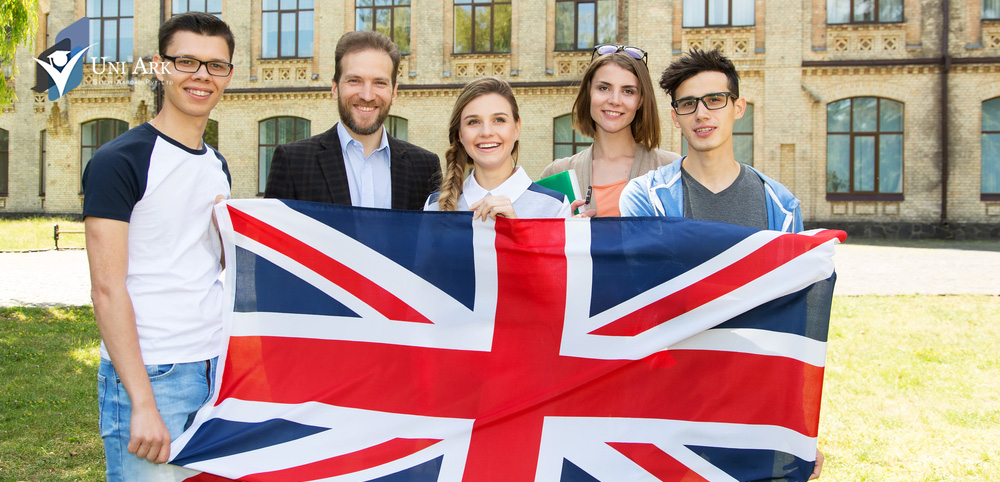
Stay Back And PR Options
The UK has always been an attractive study destination for Indian students, but staying in the UK after you finish your course can be difficult. In view of the recent developments, students who are to enroll for courses starting 2020/21 can stay back for two years after course completion. Presently, you need to apply for a Tier 2 visa (work visa) immediately on finding a job after finishing studies. Your Tier 4 visa is valid only till your course duration.
Becoming a permanent resident for international students is securing the “indefinite leave to remain (ILR) Visa”. After 8 years of completing a graduate job, a person can apply for the ILR. A stable income along with a full-time job, good moral conduct with no criminal record will help in securing the ILR visa. People also have to pass the Knowledge of Life in the UK test and a recognized English Language test. The entire process of obtaining the ILR visa can take up to 6 months.
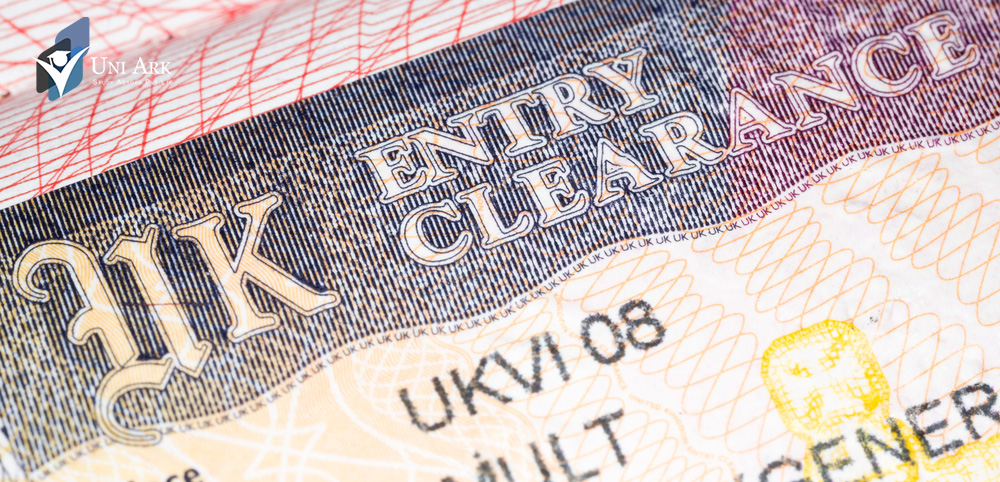
Trending UK Courses for Overseas Students
- Business Studies: A Business and Management degree focuses on the planning, running and operations of an organisation. Students will look at each part of a business, including areas such as finance, marketing, human resources and administration, and many Business and Management programmes offer placements with globally recognised companies, enabling you to experience firsthand what the profession involves.

- Accounting and Finance:
Accounting and Finance courses in the UK will help you craft unique perspectives and knowledge on economics, mathematics, political science, psychology and sociology. Students will learn how to prepare and interpret financial information, as well as gaining a theoretical and practical understanding of core financial practice. .

-
Undergraduate Law :
Almost all UK law courses allow students the option of taking a year’s professional placement at a firm, while overseas study is also available. Students can also choose to combine Law with another subject such as business, politics or journalism.

- Economics: Economics students will develop their problem solving, data analysis, computing and written and oral presentation skills, all abilities which are highly regarded and sought after in today’s economic climate.

- Art & Design
Studio-based work is central to all Art courses and can include painting, sculpture, installation, printing, photography and digital media, with students specializing in their own area of interest.

- Computer Science A Computer Science degree at a UK university will provide you with the core skills needed to shape businesses and organisations. New tools, programs and development kits will help develop your knowledge and ability in areas such as IT, games development, software engineering, design and security.

- Mechanical Engineering Mechanical Engineering is a discipline of engineering that applies the principles of physics and materials science for analysis, design, manufacturing, and maintenance of mechanical systems.
- Electrical Engineering
Electrical Engineering... is a field of engineering that generally deals with the study and application of electricity, electronics and electromagnetism. It covers a range of subtopics including power, electronics, control systems, signal processing and telecommunications.
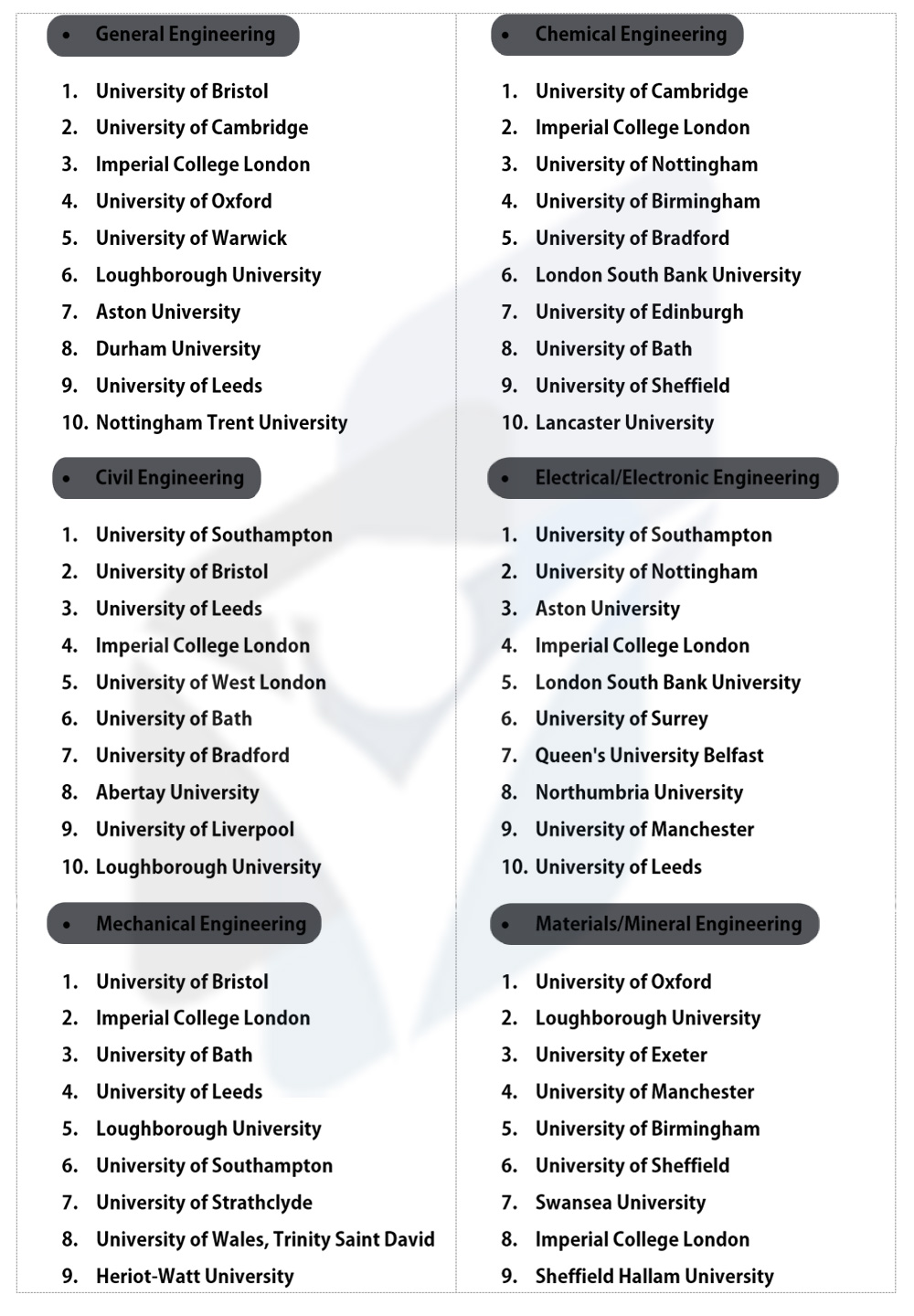
- Politics A Politics degree at a UK university will provide students with an understanding of the key dynamics of different political systems around the world, how governments deal with crisis, debt, human right and the nature of society.
-
Biological Sciences Biological sciences is the study of life and living organisms, their life cycles, adaptations and environment. Modules include the study of a wide range techniques used in the study of protein structure and protein complexes and their importance in cells.
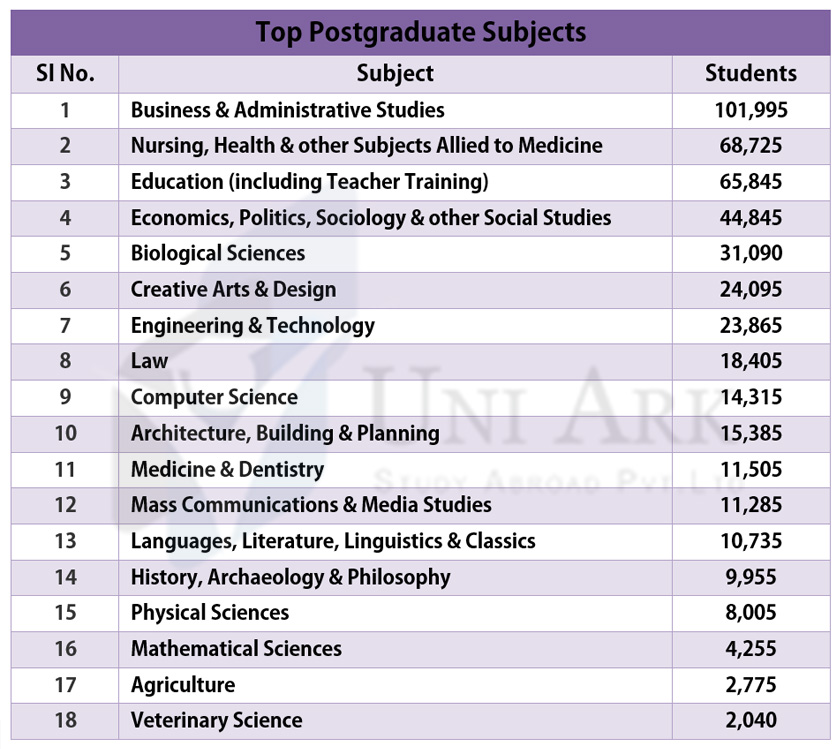 *The information in this table is based on official HESA statistics for student numbers in the 2018-19 academic year.
*The information in this table is based on official HESA statistics for student numbers in the 2018-19 academic year.
Visa & Fund Requirement
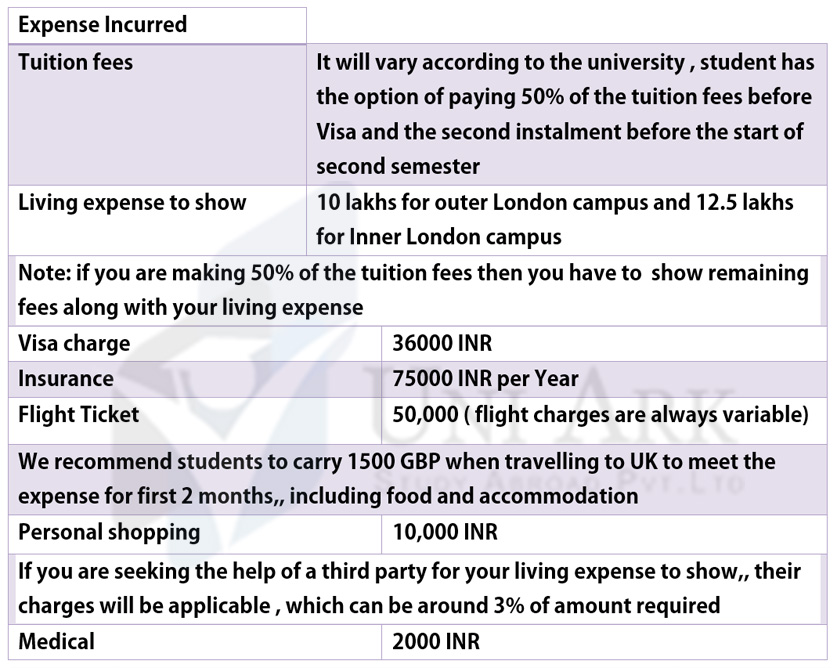
Student Visa
The Student visa has replaced the Tier 4 (General) student visa.
Student visa rules: an overview
Your course must meet the government’s eligibility requirements to apply. You can apply for a Student visa if you’re 16 or older.
You will also need:
- A course confirmation: you must receive an unconditional offer and a Confirmation of Acceptance for Studies (CAS) from a university that is a licensed student sponsor. You must apply for your visa within 6 months of receiving your CAS.
- Funding: you must provide proof that you have enough funds to pay for both your course tuition fees and your monthly living costs.
- Proof of your English language skills.
- Evidence of consent from your parents or tutors if you’re a minor.

Documents you'll need to apply
When you apply for your Student visa you must provide:
- UK VISA CHECKLIST
- ONLINE VISA APPLICATION FORM
- NHS FORM (PROOF OF MEDICAL INSURANCE PAID TO NHS- AN APPROX OF 150 GBP/YR)
- CAS LETTER FROM UNIVERSITY
- OFFER LETTER
- ORIGINAL PASSPORT
- 3 PHOTOS (WHITE BACK GROUND 35*45)
- MEDICAL (TB CHEST XRAY REPORT)
- ACADEMIC DOCUMENTS
a. 10TH
b. 12TH
c. DEGREE MARKLIST ALL SEMESTERS
d. DEGREE CERTIFICATE / PROVISIONAL
e. IELTS (IF AVAILABLE) - ATAS
- FINANCIAL DOCCUMENTS
a. IF YOUR FUND IS FROM A LOAN
b. BANK LOAN LETTER
c. LOAN DISBURSEMENT LETTER - IF THE FUND IS IN PARENT’S ACCOUNT
a. ID PROOF OF PARENT
b. BANK PASSBOOK OF PARENT SHOWING THE FUND IS 28 DAYS OLD
c. BANK LETTER OF 28 DAYS OLD FUND
d. AFFIDAVIT FROM THE PARENT ON A 100 RUPEE STAMP PAPER
e. BIRTH CERTIFICATE - IF THE FUND IS IN STUDENT’S ACCOUNT
a. BANK PASSBOOK OF STUDENT SHOWING THE FUND IS 28 DAYS OLD
b. BANK LETTER OF 28 DAYS OLD FUND - A COVERING LETTER FROM THE STUDENT
How To Apply
International students must submit their application online via the UK Visas and Immigration website.
You can only apply for your visa once you have been given a Confirmation of Acceptance for Studies. If you are applying from outside the UK, the earliest you can apply is three months before the start date of your course.
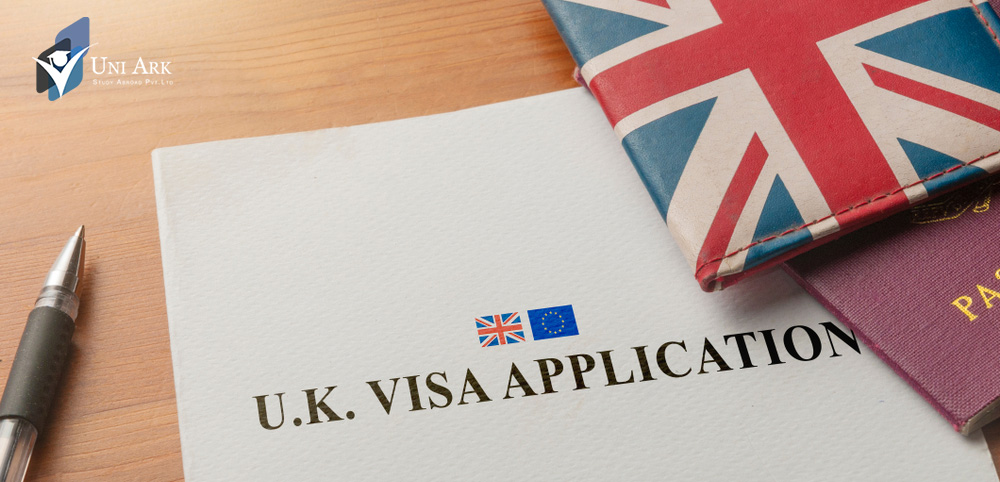
Healthcare
You will also need to pay the Healthcare Surcharge. This gives you access to the UK’s National Health Service (NHS) upon application, but only if you intend to live in the UK for longer than six months.

Money You Need
You must have enough money to pay for your course and support yourself in the UK.
How much money you need depends on your circumstances and what you’re applying for.
Course Fee
You need enough money to pay for your course for 1 academic year (up to 9 months). The amount you need to pay will be on your Confirmation of Acceptance for Studies (CAS).
If you’ve been in the UK with a valid visa for at least 12 months, you do not need to prove you have this money for your visa application.
Money to support yourself (‘Financial Requirement’)
You’ll need to show you have enough money to support yourself - unless you’ve been in the UK with a valid visa for at least 12 months on the date of your application.
How much money you need depends on where you will be studying. You’ll need either:
- £12006 (1 Year) for courses in London
- £9207 (1 Year) for courses outside London
- If you’re boarding at a residential independent school, you’ll need to pay boarding fees instead. The amount you need to pay will be on your CAS.
- London means the City of London and the 32 London boroughs.
- You’ll need to prove you have extra money for each family member you bring with you.
- You must have this money for at least 28 consecutive days. The end date of the 28-day period must be within 31 days of the date you apply for your visa.
- If you have a student loan or financial sponsorship, you’ll need to provide evidence of this from your loan or sponsorship company.
When you do not need to prove you have money to support yourself
You do not need to prove the financial requirement if:
- You’ve had a UK visa for 12 months prior to the date of your Student visa application - you must currently be in the UK
- You’re applying as a student union sabbatical officer
- You’re applying as a postgraduate doctor or dentist on a recognized foundation programme
Full time work option in UK for international students
The UK is a safe place to work in and has a low crime rate. Jobs for International students are plenty after graduating. The permissible hours of work in the UK for foreigners are pre-determined. The working hours are mentioned on visa sticker or Biometric Residence Permit (BRP). Also, The time limit depends on the most recent immigration application. If the employer is not from the UK, then the number of hours an employee can work for is 10-20 hours per week. Getting a work visa in the UK after graduation depends on your nationality, the level course studied in the UK, and if your studies are completed or not.
The job market of UK is competitive adhering to the global standards. Major industries with jobs for international students in UK are-Agriculture, Armed Forces, Law, Investment Banking, Production, and Services. Major services include metals, chemicals, aerospace, shipbuilding, Oil and Energy, Accounting and professional services, textiles and clothing, motor vehicles, food processing and electronic and communications equipment.

Part time work option in UK for international students
There are thousands of part-time student jobs in London to help support your studies. Many universities have careers and work placement centers to help you find employment. The on-campus part-time job is limited in number and students mostly rely on off-campus part-time jobs. Getting an off-campus part-time job is not that difficult for an international student in the UK who has some basic skills and good communication. However, they need to find out the most suitable part-time job for themselves and apply for the same. Some universities may only allow you to work inside the campus, but there is no need to worry because there are still many options available. However, before getting out to hunt part-time jobs you must check if you’re eligible for such work. It all starts with your Tier 4 visa, the official student visa in the UK. The first criteria you must check is your age. If you’re under 16 and don’t have a Tier 4 (General 4) you’re not qualified to work in the UK. Reasons why an international student opts for a part-time job are utilisation of spare time to earn extra money, paying off education loan and also acquiring certain skills and work experience along with studies. different part-time jobs required people in various shifts of the day. Based on their availability, students can choose the job role. Certain jobs can also be taken over the weekend. Payment for a part-time job is mostly calculated on the basis of hours of work.
Many students fear that they lack the proper skills to find a job as a student. That is mainly wrong because the majority of student jobs require no specific qualifications or skills. Furthermore, regardless of how hard may be to perform the task in a job placement as a student, you will always receive provision from an experienced employee. The average part-time weekly wage across the UK is £112.20 a week
- Maximum of 20 hours per week of paid/unpaid work for those studying at degree level or more.
- Maximum of 10 hours per week of paid/unpaid work during course term for language center students.
- Full-time work is allowed during vacations.
Below we give you a list of student jobs in the UK, which will give you an idea over what jobs to seek in UK as a international student.
- Physiotherapy Assistant
- Sport Facilities Worker
- Delivery Boy,
- Cashier,
- Freelance Translator
- Enrollment Advisor
- Bartender
- Brand Ambassador
- IT Assistant
- Fitness Instructor
- Residence Guider
- Bookstore Helper
- Grocery Store Helper
- Dataentry Operator
- Waiters/Waitresses In Restaurants
- Call Centres Executive
- Swimmingpool Maintenance